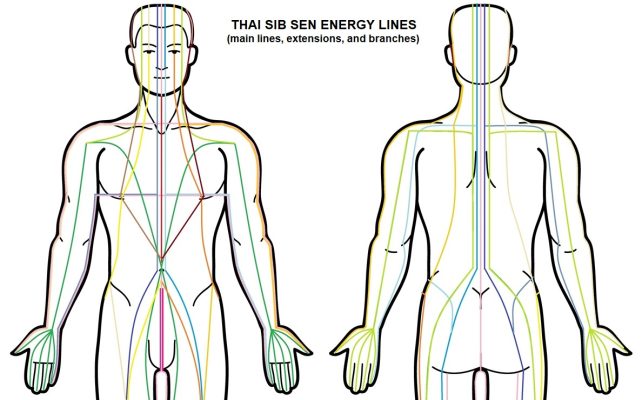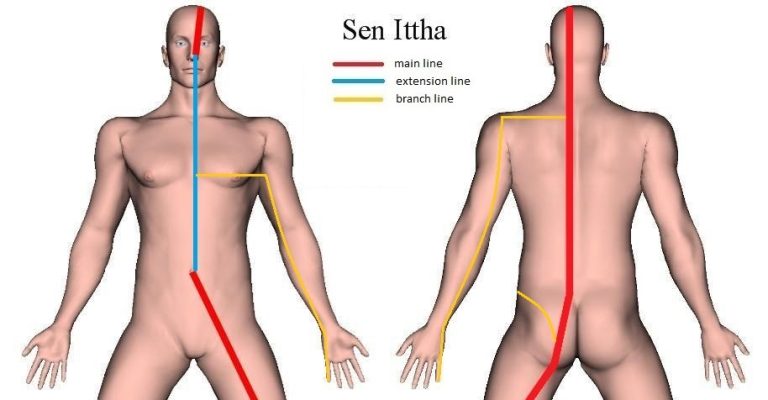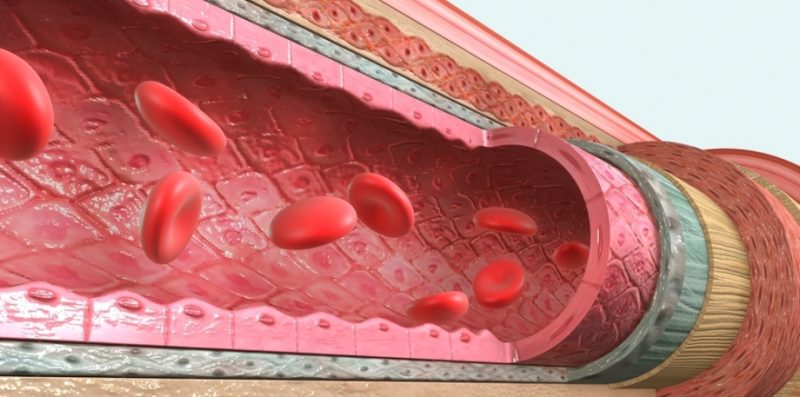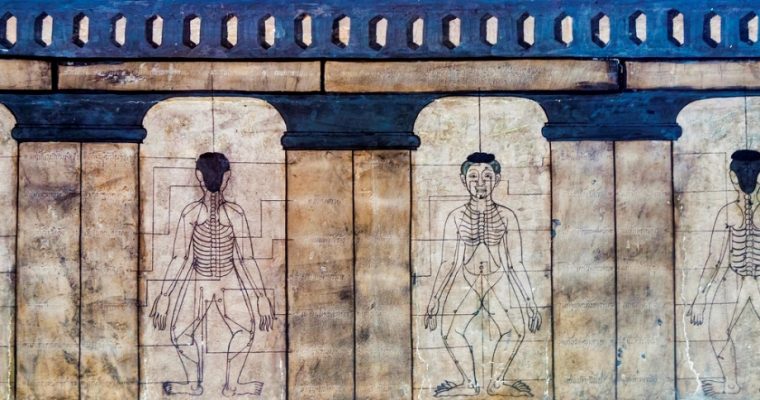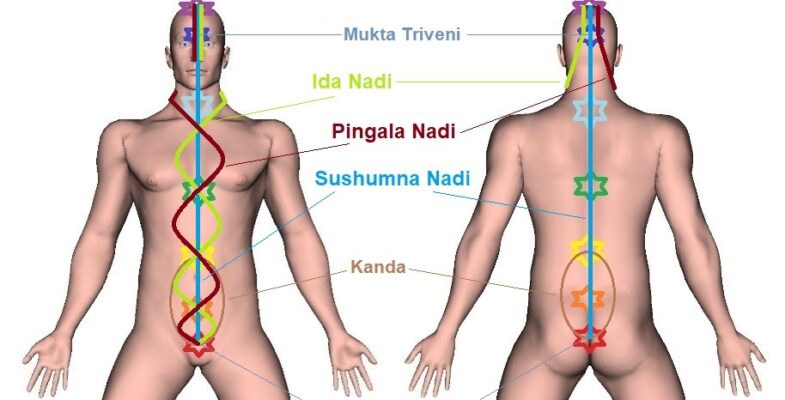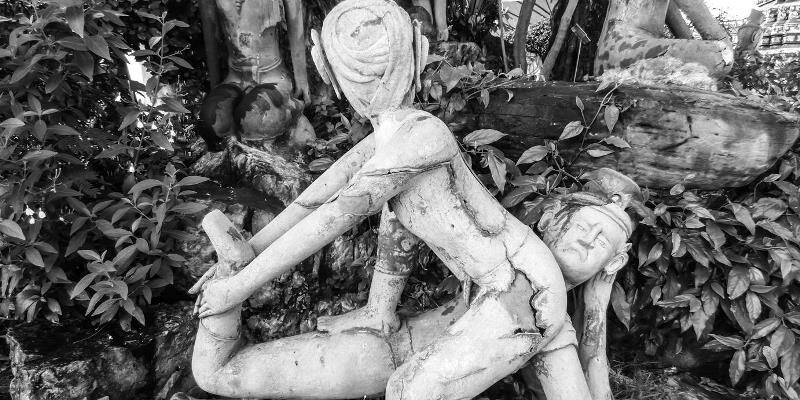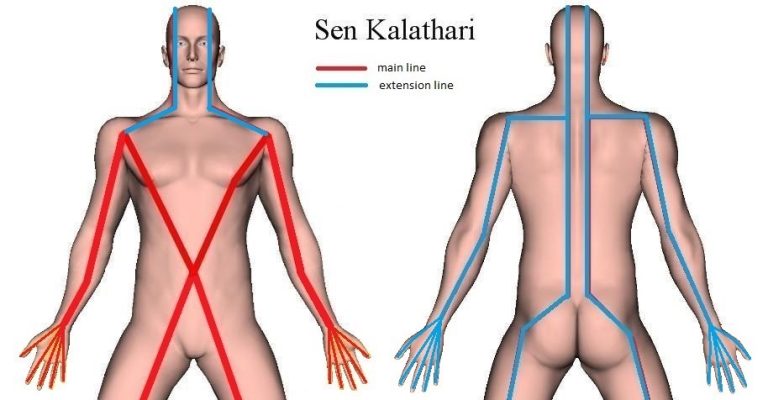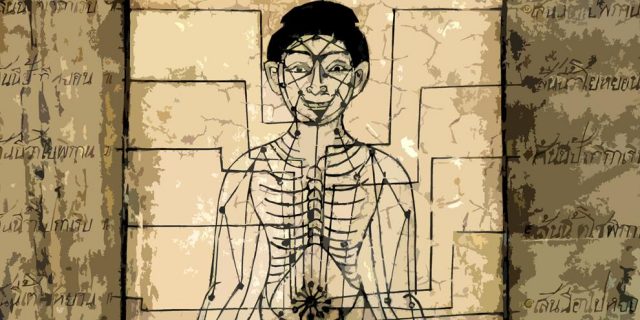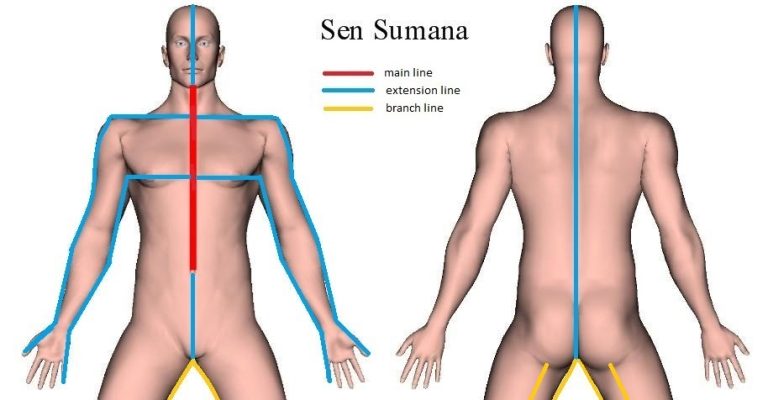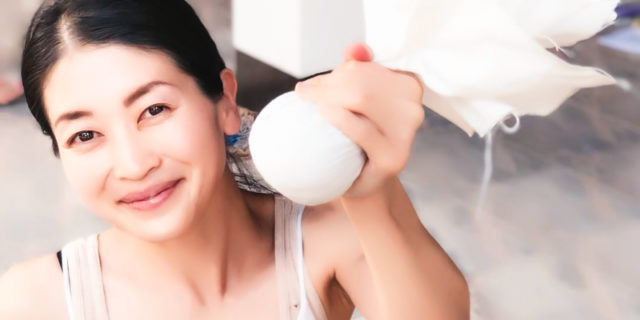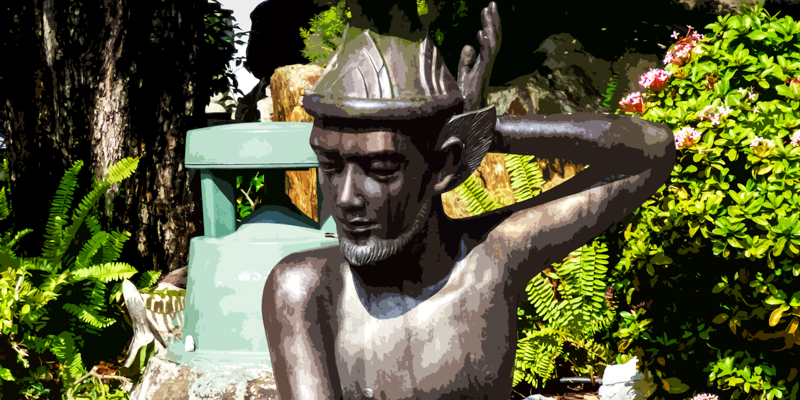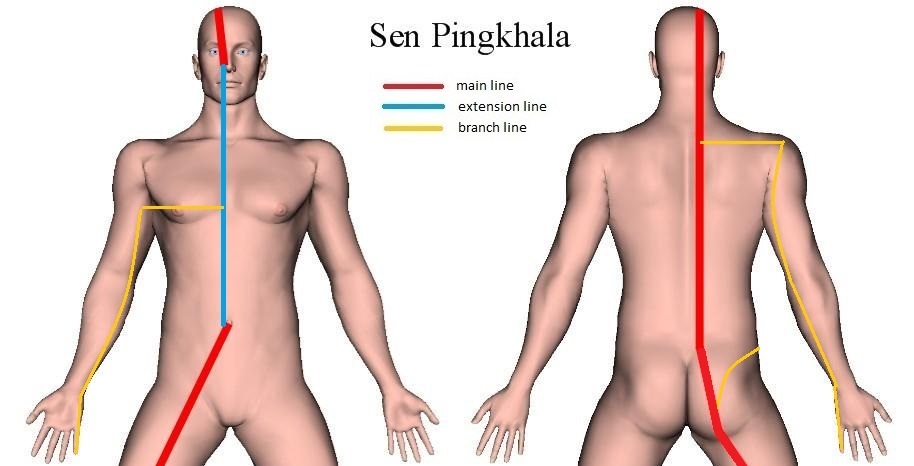
Sen Pingkhala — often also written as Sen Pingkala — is the counterpart of Sen Ittha, and one of the ten Thai Sib Sen or major Sen Energy Lines as addressed in Thai Traditional Massage and Thai Yoga (Reusi Datton).
Additional names used for Sen Pingkhala are Pingla, Pingkla, Pingkala, or Pingala.
Pingkhala is associated with the Fire Element. Typically, this Energy Line is related to curing or alleviating headaches, sinusitis, back and neck pains, and sciatic nerve pains. The associated organs are the nose, gallbladder and liver, kidneys, and the urinary tract system.
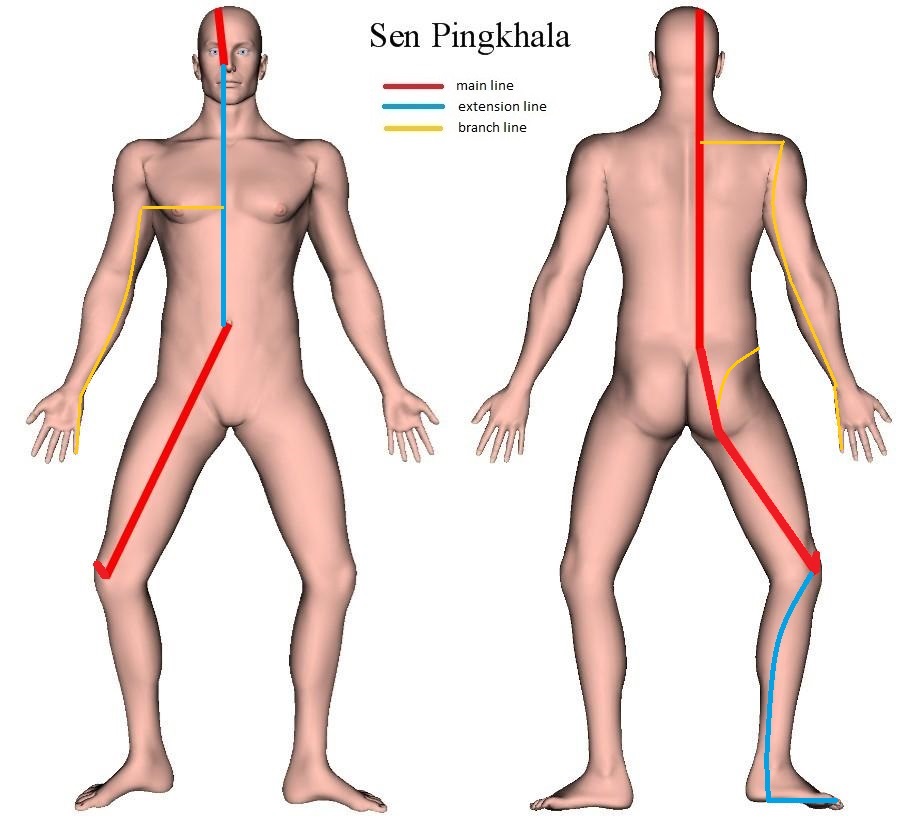
Trajectory of Sen Pingkala

Further below we’ll describe the trajectory and location of Sen Pingkhala. We’ll first address the Sen Pingkhala main line, followed by the Sen Pingkhala extension and branch lines.
The Sen Pingkhala main line (red color in the chart above) runs at the right side of the body. The Energy Line starts at one thumb distance right of the navel, goes down the abdominal region through the groin, becomes the first inside line on the right thigh, crosses the knee, changes to the backside of the body and becomes the third outside line on the right thigh, moves up crossing the buttocks and becomes line one at the back running adjacent to the spinal column, moves further up to the neck and head, travels over the head and ends at (the inside of) the right nostril.
Mind that the exact location at the right nostril is not entirely clear; it may be in the right nostril or just under it. There’s also a Thai Massage lineage that places Sen Pingkhala’s endpoint (termination point) at the inside corner of the right eyebrow.
There are two extension lines of Sen Pingkhala (blue color in the chart above):
- one extension runs at the front side of the body along the right side of the spinal column (parallel to Sen Sumana), from the navel up to the right nostril, as such connecting the starting and ending point of the Sen Pingkhala main line.
- the other extension line runs from the right knee down along the third outside line of the right leg to the right foot and right little toe (pinky toe).
There are three branch lines of Sen Pingkhala (yellow color in the chart above):
- one branch starts at the level of the nipples (at the front side of the body) from the extension line that runs front along the spine, and branches out to the third inside line of the right arm down to the right little finger (pinky finger).
- the second branch starts at the level of the shoulder blades (at the back of the body) from the main line that runs right at the back along the spine, and branches out to the third outside line of the right arm down to the right little finger (pinky finger).
- the last branch starts on the right buttock and runs in a curve to the right hip. In Thai Massage, this is called the “boomerang area,” which is an extension of the third outside line of the leg.
Sen Ittha takes the same trajectory as Sen Pingkhala, but then on the left side of the body. It’s thought that Sen Ittha and Sen Pingkhala touch (i.e. join) each other at the location of the Ajna Chakra (the Third Eye, which is approximately located between the eyebrows).
Mind that Sen Pingkhala is considered the same Energy Channel — or at least rather similar — as the Pingala Nadi in Yoga. You may notice the linguistic similarity of the two Energy Channels.
Therapeutic Indications of Pingkhala
Therapeutic indications include headaches, stiff neck, shoulder pains, common cold, cough, dizziness, nasal obstruction, nose problems, restless legs, sciatica, sore throat, sore eyes, chill and fever, insomnia, abdominal pains, intestinal problems, nerve conditions, injured bones, back pains, knee pains, diseases of the urinary tract, kidneys, all internal organs, and diseases of the gallbladder and liver.







